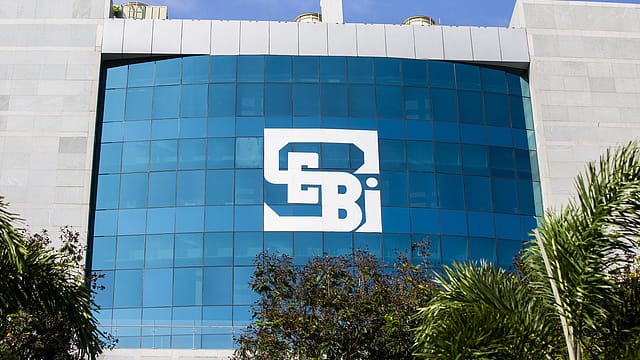SEBI mulls mandatory UPI block facility for secondary market trading
ADVERTISEMENT

The Securities and Exchange Board of India (SEBI) has proposed a UPI block mechanism or ASBA-like facility for trading in the secondary market by qualified stock brokers (QSBs). So far, the facility is mandatory in the primary market only but optional in the secondary market.
As per the market regulator, trading members (TMs) are classified as QSBs based on the size and scale of their operations, including the number of active clients, the total assets held by clients, the end-of-day margin of all clients, and the trading volume.
SEBI has sought comments from stakeholders and members of the public on whether the facility of trading supported by a blocked amount in the secondary market using a UPI block mechanism (ASBA-like facility) should be "mandatorily" offered by QSBs to individuals and HUFs. This is currently a non-mandatory facility provided by TMs.
SEBI has also sought comments on whether a “3-in-1 trading account facility”, can be offered by QSBs as an alternative to the above proposed mandatory offering of an ASBA-like facility.
SEBI introduced the use of RBI-approved UPI with a facility of blocking funds, as a payment mechanism for retail investor applications submitted through intermediaries for IPOs from January 2019.
January 2026
Netflix, which has been in India for a decade, has successfully struck a balance between high-class premium content and pricing that attracts a range of customers. Find out how the U.S. streaming giant evolved in India, plus an exclusive interview with CEO Ted Sarandos. Also read about the Best Investments for 2026, and how rising growth and easing inflation will come in handy for finance minister Nirmala Sitharaman as she prepares Budget 2026.
Amid advances in the payment mechanisms, it was felt the UPI mandate service of a single block and multiple debits can be integrated with the secondary markets to provide a blocking mechanism. The idea was to allow investors to block funds in their bank account for trading in the secondary market, instead of transferring them upfront to the TM. This would in turn provide enhanced protection of cash collateral for the investor, besides allowing the investor to earn interest on such balances.
In January 2024, SEBI introduced a supplementary mechanism for trading in secondary markets by integrating the UPI service of a single block and multiple debits. Under this facility, the client can trade in a secondary market based on blocked funds in his or her bank account, instead of transferring the funds upfront to the trading member.
The facility is currently optional for investors, and not mandatory for TMs to offer as a service to clients.
SEBI says this process of trading in the secondary market through a UPI facility by blocking funds, by design, safeguards clients’ assets from misuse or brokers’ default and consequent risk to their assets. SEBI thinks this mechanism may eventually become a popular method for retail investors, such as individuals and HUFs, to trade in the securities markets, provided that TMs are willing to adopt it.
The data regarding the number of unique clients (individuals and HUFs) registered with the QSBs as of July 31, 2024, and their gross traded value shows around 83% of clients, who contribute 68% of the gross trade value in the cash segment, are trading using the services of QSBs. "It has been observed that QSBs have generally taken the lead in developing the systems necessary to make trading through the UPI block mechanism available to their clients," says SEBI.
